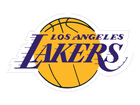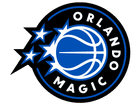Hillman said he didn’t think it was a coincidence that he was drafted into the Army in 1969 during the Vietnam War and didn’t play at San Jose State again. San Jose State would later retire Hillman’s No. 45 jersey in 2012. “The father of the Ogden brothers pointed right at me and said, ‘My sons aren’t going to play against him again,’ ” Hillman said. “He was the head of the California Draft Court. [Media] claim the story is that I dropped out of school to go join the Army. No, they took me out of school. … “I went in front of the draft board declaring hardship. I was the only male in the family and they allow you to keep the legacy and the name going. You go into this room with three guys and give them your story. They send you out the room for two, three minutes. I wasn’t out the room 30 seconds. They called me back in and they pointed at me, ‘Your report on your due date is on the paper.’ ’’
George Karl: It’s an eerie time. It reminds me of similar moments of crisis- 9/11, the Cuban Missle Crisis and the end of the Vietnam War eg. This, too, shall pass. And it could be a chance to help us reunify!

Most accounts trace the gesture to the late 1960s, when African American soldiers "dapped" -- along with flashing the black power sign -- with one another to show solidarity in the face of injustice during the Vietnam War. For Kerr, it was a gesture to fit in with the people of color in the room. So, when his turn came, Kerr gave his interpretation of a handshake.

Throughout his career, former Los Angeles Lakers player Kareem Abdul-Jabbar has been a social and political activist. He boycotted the 1968 Olympics and supported Muhammad Ali's decision to refuse induction into the military during the Vietnam War. He also recently took the stage at the Democratic National Convention. The cultural commentator and best-selling author joins "CBS This Morning" to discuss his new book, "Writings on the Wall: Searching for a New Equality Beyond Black and White."

On Thursday, Kobe Byrant responded to comments from NFL legend Jim Brown, who said Bryant was “confused” about African-American culture “because he was raised in another country.” Brown made the remarks in an appearance on the Arsenio Hall Show. Here’s the full quote, from Sports Grid: “He’s somewhat confused about our culture. Because he was brought up in another country…If I had to invite people to that [black athlete] summit all over,” Brown said, referring to a summit held in the early 70s regarding Muhammed Ali’s refusal to fight in the Vietnam War, “there’d be some athletes I wouldn’t call. He’d be one of them.”
Advertisement

Popovich wasn’t heavily recruited by colleges, so when he graduated high school at age 17, as the Vietnam War raged on, he followed the path of many other young men and entered a service academy — if nothing else to delay entry into the war and, if that time came, do so as an officer. Kreimborg, Purcell and Brown arrived the following year, from, respectively, Kentucky, Ohio and Wyoming. Purcell was assigned to the same four-room living alcove as Popovich, who promptly asked, “Do you know who started World War I?” Purcell responded that, yes, a Serbian had assassinated Austrian Archduke Ferdinand. “Yeah, and I’m a crazy Serb,” Popovich told him.

A large crowd of war veterans and their supporters gathered in front of Orlando City Hall on Friday to protest Orlando and Orange County leaders attending the NBA All-Star Game at the Amway Center later this month. They offered a public plea to Orlando Mayor Buddy Dyer, Orange County Mayor Teresa Jacobs and other community leaders, asking that they hand over their tickets to constituents. "Their job is to serve the public, not to benefit from the public," said Vietnam War veteran Thomas Pastore.

"We're not allowed," Anthony said. "I mean, everybody has their own opinion. You hear people talk here and there. But nobody comes out and says what they really want to say. That's just the society we live in." He laughed a little. And, then: "Athletes today are scared to make Muhammad Ali-type statements." Say what? Forget for a second that Ali got in trouble (with some) for his vocal opposition to the Vietnam War, for refusing induction into the Army and for not only becoming a Muslim, but a Muslim who supported the controversial teaching of Nation of Islam leader Elijah Muhammad until Muhammad's death in 1975. Kind of big things. And by comparison, Anthony was asked about speaking up on a labor dispute involving millionaire athletes and billionaire owners. Kind of little things, in the grand scheme.